Politics
Nandala encourages Ugandans to grow more coffee, shares plan on landslides
“So, now the farmer here calls coffee Nandala. When I came in, they were suffering. Now they earn money. Wherever you go, they say, ‘I am going to look after my Nandala.’ That is how much this crop means,” Nandala said.
Mafabi criticised what he called the Government’s emphasis on emergency response rather than prevention. (Credit: Alfred Ochwo)
By: John Musenze, Journalists @New Vision
BUDUDA - Presidential hopeful James Nathan Nandala Mafabi has urged Ugandans to grow more coffee, describing it as the country’s most reliable and transformative cash crop that every home must fight to have.
Mafabi, who is the Forum for Democratic Change (FDC) flag-bearer, made the call on November 23, 2025, while campaigning across the districts of Bududa and Tororo in Elgon, a region he considers home both politically and culturally.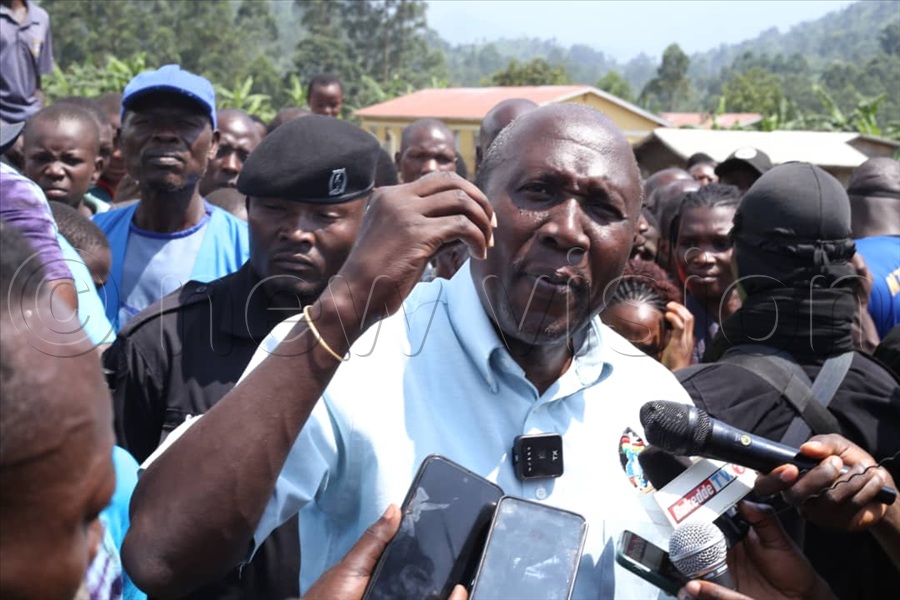
Mafabi criticised what he called the Government’s emphasis on emergency response rather than prevention. (All Photos by Alfred Ochwo)
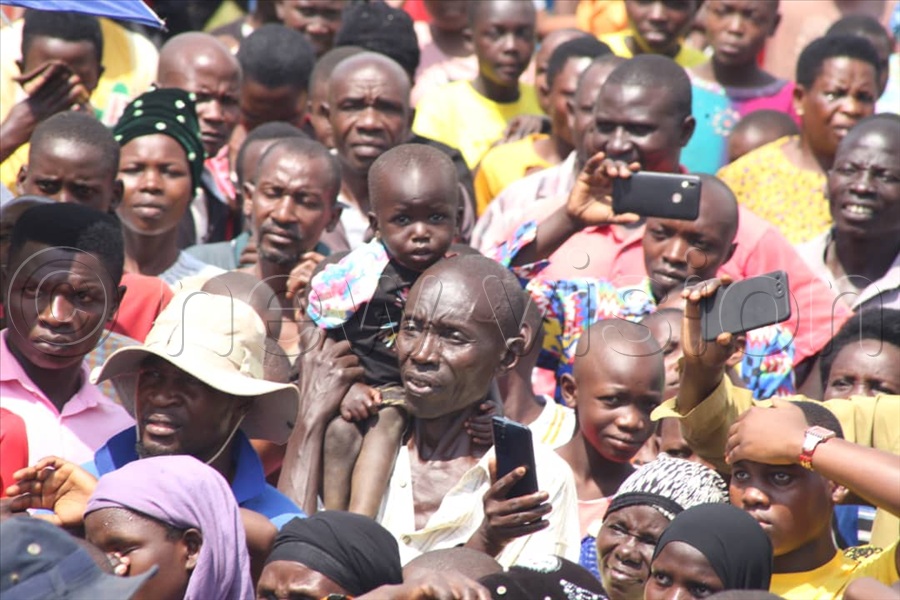
Moving from village to village, Mafabi, who held five rallies across the district, reminded residents to use the increase in coffee prices of now shillings 18,000 to generate income by growing more, not forgetting other local foods like matooke.
"One of my agendas is to ensure that coffee is listed on the stock exchange, specifically the New York board, We need to overwhelmingly grow coffee not just in Bugisu, but for the entire country. Coffee is a key cash crop here, and I want to encourage the people to continue growing it. We'll grow coffee alongside other crops like trees and matoke, maximising its potential," Nandala told his supporters.
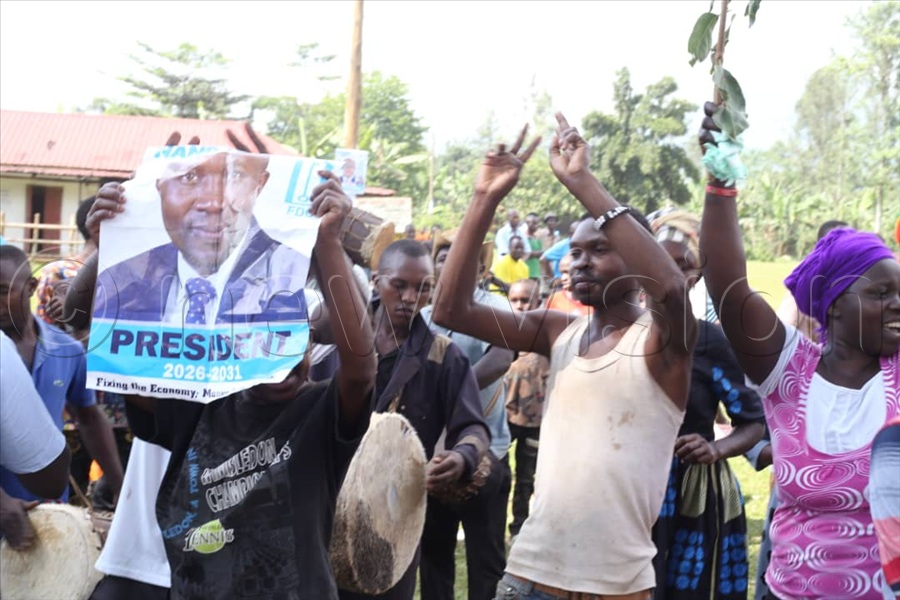
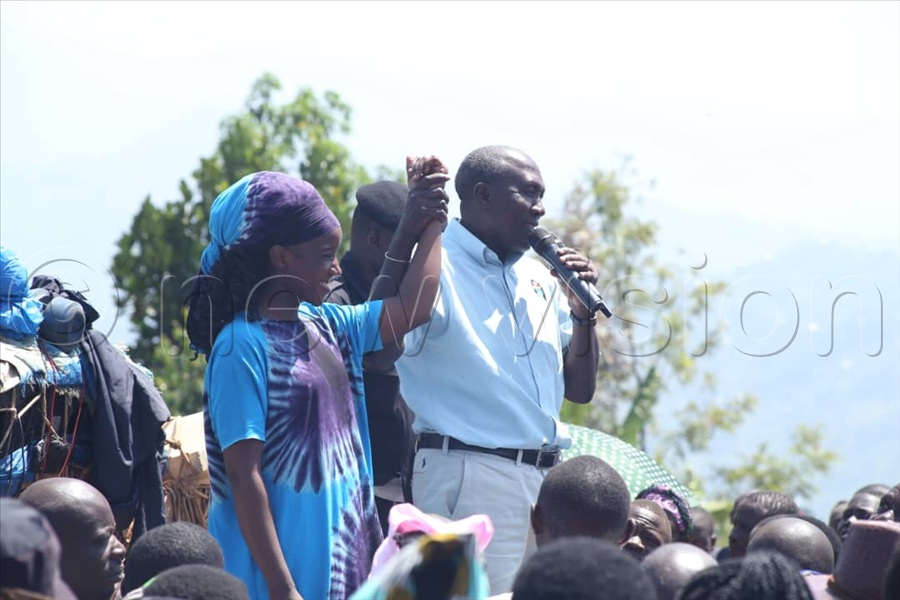
He recalled the late 1980s, when farmers were encouraged by government extension workers to uproot their Arabica coffee and plant pepper, avocado and silkworms instead—a move he opposed even as a young student.
“In 1987, they advised our people to cut coffee. We walked on foot all over the region, telling them. Do not cut your coffee. Some who uprooted theirs regret it to this day.” Nandala told journalists while in Bududa district.
As chairperson of the Bugisu Cooperative Union (BCU), he said he pushed for better coffee prices, raising them from as low as shillings 1,000 per kilogramme to 12,500. According to him, prices later dropped during the years when, according to him, government administrators controlled BCU, but he says they have since recovered to an average of shillings 17,000–18,000 under farmer leadership.
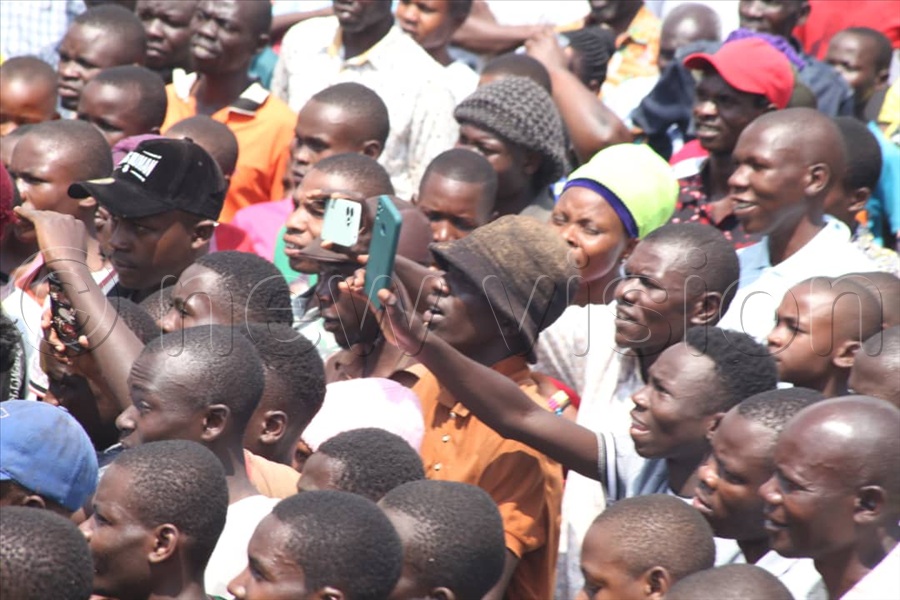
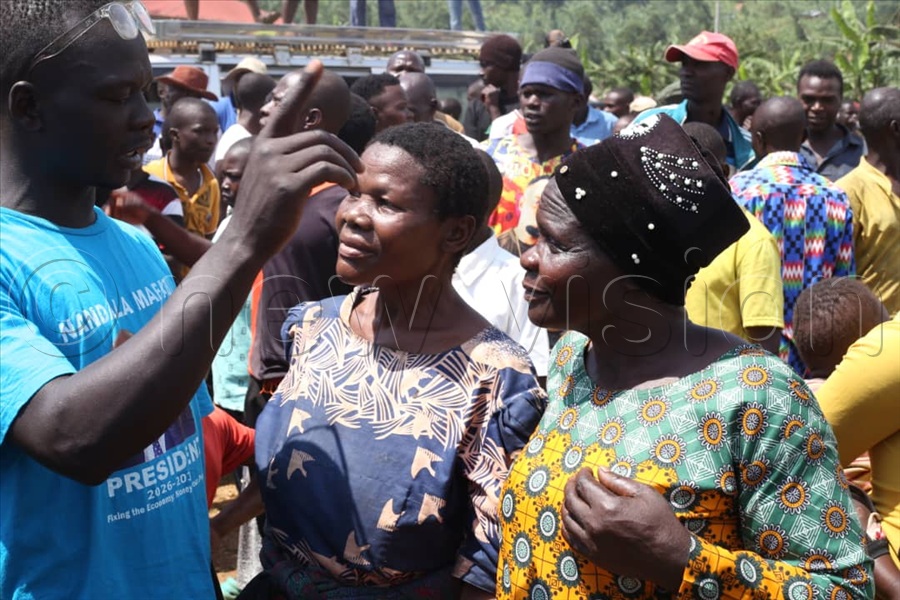
“So, now the farmer here calls coffee Nandala. When I came in, they were suffering. Now they earn money. Wherever you go, they say, ‘I am going to look after my Nandala.’ That is how much this crop means,” he said.
His central pledge is to list Uganda’s coffee on the New York Stock Exchange, arguing that international visibility will help Uganda transition from selling raw beans to competing in premium global markets.
Over the years, President Yoweri Museveni’s government has made multiple efforts to promote coffee. Through the Uganda Coffee Development Authority (UCDA), the state has distributed seedlings, supported research into disease-resistant varieties, promoted value addition and funded extension services.
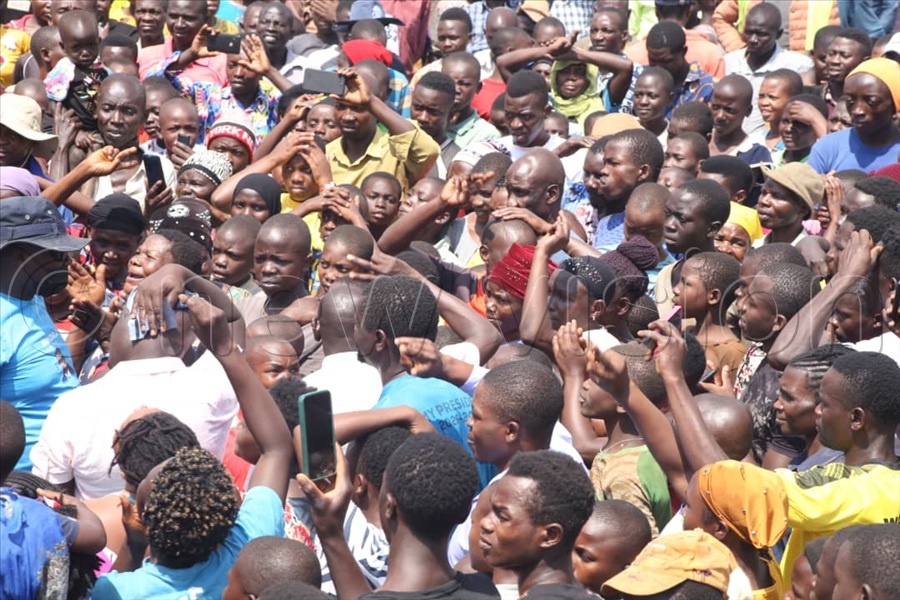
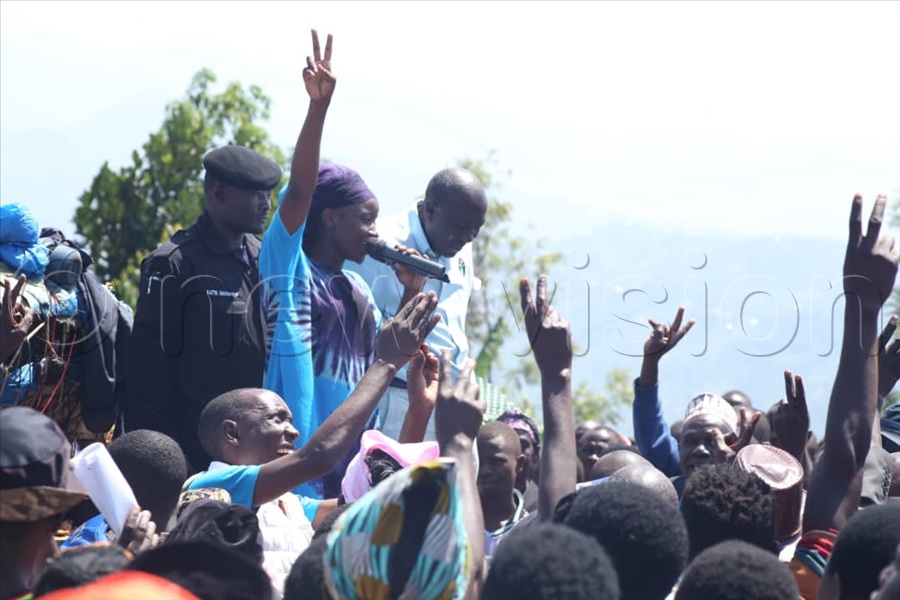
Programmes like the Operation Wealth Creation (OWC), Emyooga and the Parish Development Model (PDM) have prioritised coffee as a key cash crop for rural transformation.
Nationally, coffee remains Uganda’s leading agricultural export. In the 2024/25 coffee year, the country earned $2.3 billion from exports of 8.2 million 60-kg bags, an increase of 64% in revenue and nearly 30% in volume compared to the previous year.
Bududa, located high on the slopes of Mount Elgon, is the cradle of Bugisu’s world-famous Arabica coffee. But it is also one of Uganda’s most disaster-prone districts, where landslides routinely wash away homes, wipe out gardens and claim lives.
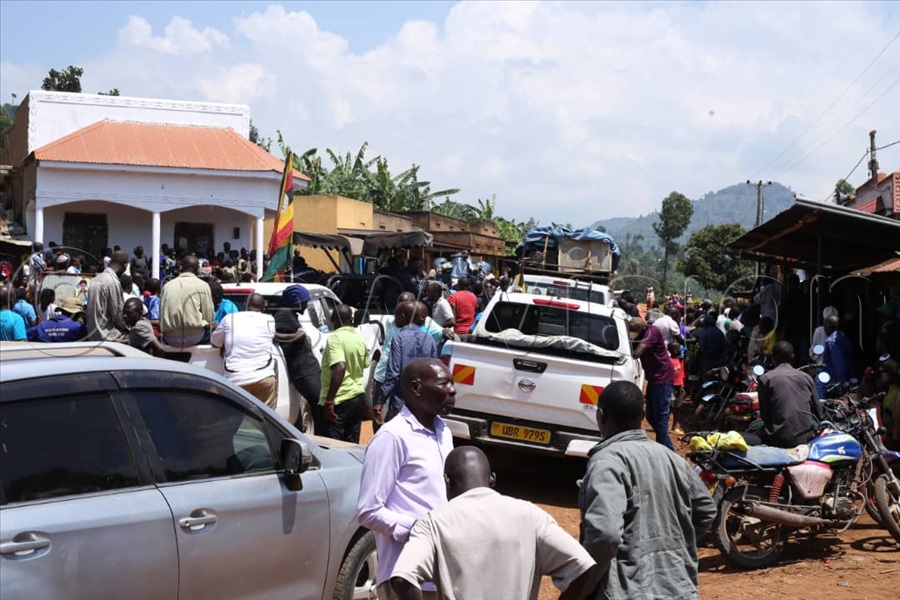
Emergency response
Mafabi criticised what he called the Government’s emphasis on emergency response rather than prevention.
“Bududa is one of Uganda’s most disaster-prone districts, but this is easy to manage. All we need is proper disaster preparedness and an early warning system.” he said.
He proposed a new approach of creating safe residential corridors within Bududa, equipped with modern houses, water, toilets and schools. Residents would farm their hillside land during the day and return to secure settlements at night.
“You don’t need to shift people to far places. Respect people’s heritage. Build safety where they are,” he insisted.
Despite its struggles, Bududa has been a consistent stronghold for the ruling NRM. In the 2021 elections, most sub-counties voted overwhelmingly for President Museveni with 29,224 votes against National Unity Platform's Sentamu Kyagulanyi with 14,666 votes.
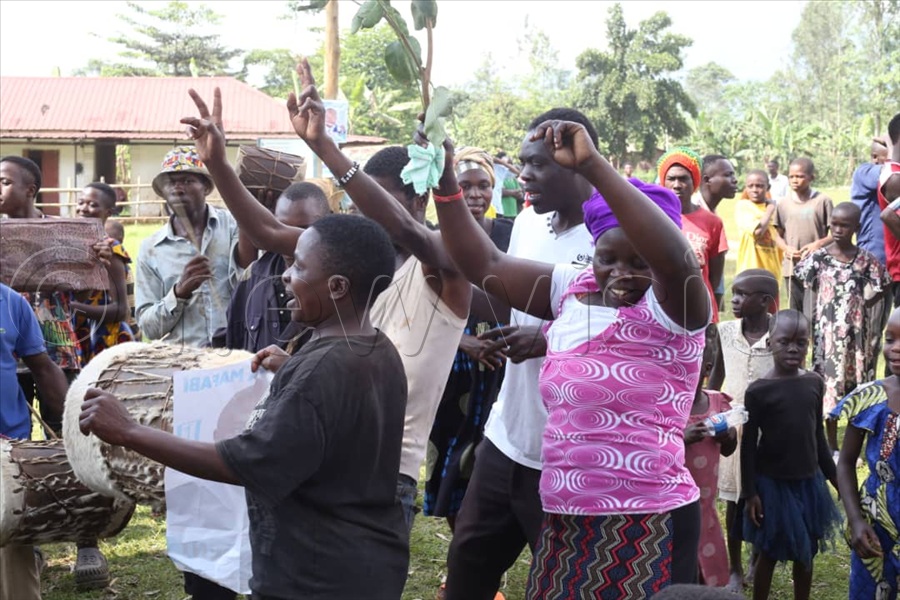
Across the five rallies held across the district, locals told the New Vision that many villages still lack basic services like all-weather roads, bridges, and health facilities. The few tarmac roads in the region date back to earlier post-independence governments.
“We have voted 100% for NRM but look at us with no roads, no hospitals, no protection from landslides. Our votes do not change our lives.” Peter Mukwana said.
“NRM talks about coffee every election season. They bring seedlings once and go quiet. But when landslides bury our gardens, the same government has no plan,” Samuel Wabomba said.
“They want to take us far away from the graves of our fathers,” she said. “We want safety, but we also want our culture. Even goats know their home, you cannot just throw people anywhere,” Constance Namwase said.
From Bududa, Mafabi continued his campaign in Sironko district on November 24, his birthplace and political stronghold, where he has served as MP for Budadiri West for 25 years.